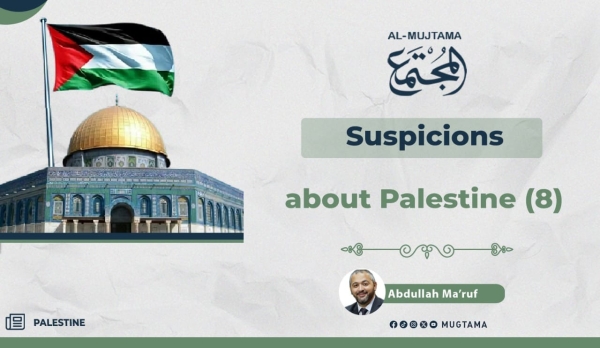Did the Jews have a role in the conquest of Jerusalem?!
The followers of the "Israeli" Orientalist school often fall into the trap of lies and baseless claims, as if they are betting on the naivety of the reader and their inability to research Islamic books and sources. These individuals deliberately list many names from these sources, reaching dozens—sometimes hundreds—so that the reader believes the researcher or author has managed to read and deeply engage with all those profound and significant sources. In reality, they have merely selected excerpts from some of them, entirely out of context, to support the idea they wish to affirm. Therefore, we often find phrases of certainty in these studies such as "there is no doubt," "certainly," and "must be"!
This matter allows the author to proceed to fabricate events and claim them without any source or relying on distant and questionable sources in the first place. One of the most significant examples of this is the claim of a significant role for the Jews in the first Islamic conquest (the Omar conquest) of Jerusalem. For instance, Shlomo Dov Goitein and Daniel Sahas assert that the Muslims sought the assistance of the Jews during their campaign on Jerusalem. These individuals claim that the Jews guided the Muslims on the paths and helped direct Umar ibn al-Khattab, may Allah be pleased with him, to the area of the Al-Aqsa Mosque!
Read also: Jerusalem from Tactical Planning to Umar's Treaty
This claim is entirely and completely refuted, as it is well-known that the Arabs before Islam frequently visited this area. In fact, some of them would visit Jerusalem at that time—most likely for tourism purposes since it was not a commercial destination—such as Abu Bakr al-Siddiq, may Allah be pleased with him, who said to the Prophet Muhammad, peace be upon him, on the morning of the Night of Isra and Mi'raj about Al-Aqsa Mosque, in the narration of Ibn Abd al-Barr: "I indeed went there." When the Prophet described it to him, Abu Bakr replied: "You have spoken the truth; I bear witness that you are the Messenger of Allah." The Prophet then said to him: "And you, O Abu Bakr al-Siddiq
As for the Jews, they were prohibited from entering Jerusalem for long periods since the time of Emperor Hadrian in 135 AD, according to Roman and Jewish historical accounts. Historically, there is no record of their presence in Jerusalem except for a few years during the Persian occupation of Jerusalem in 614 AD. Is it reasonable to assume that the Arab Muslims, who frequently visit Jerusalem, would rely on Jews as their guides, when they have been disconnected from the area for hundreds of years?!
Perhaps the most important narratives that the proponents of this school rely on are the accounts of Umar ibn al-Khattab, may Allah be pleased with him, consulting Ka'b al-Ahbar about the location of the prayer area within Al-Aqsa Mosque. Shlomo Dov Goitein believes that this issue confirms that the Jews had a role in "purifying the Temple site" and transforming it into an Islamic prayer area!
This claim is effectively refuted by Omar's rejection of Ka'b's proposal to build the prayer area behind the rock. In reality, Ka'b at that time was a Muslim and not a Jew, as Gweitin insistently labels him. Omar's consultation with him does not indicate any influence, small or large, that Ka'b had in this matter; rather, the text can be understood in the opposite way, suggesting that Omar's question to Ka'b was a test to clarify Ka'b's perspective on this area. This is supported by Omar's objection to his opinion and his assertion that "Jewish influence had mingled with him.
Even one of al-Tabari's accounts mentions that Umar noticed that Ka'b had taken off his sandals upon entering the area, and he deemed this a sign of being influenced by Judaism. Therefore, he wanted to test him in front of the people with this inquiry, saying to him, "I saw you when you took off your sandals." The conclusion is that Umar was not superficial as Guaitin attempts to portray him; rather, he was so sharp-witted that he revealed Ka'b al-Ahbar's influence from the Jewish religion at that early stage of his declaration of Islam, so that Muslims would not take from him anything that could be influenced by the Jewish perspective on the place or religion.
Read also : Which is earlier... the "Al-Aqsa" or the "Temple"?
